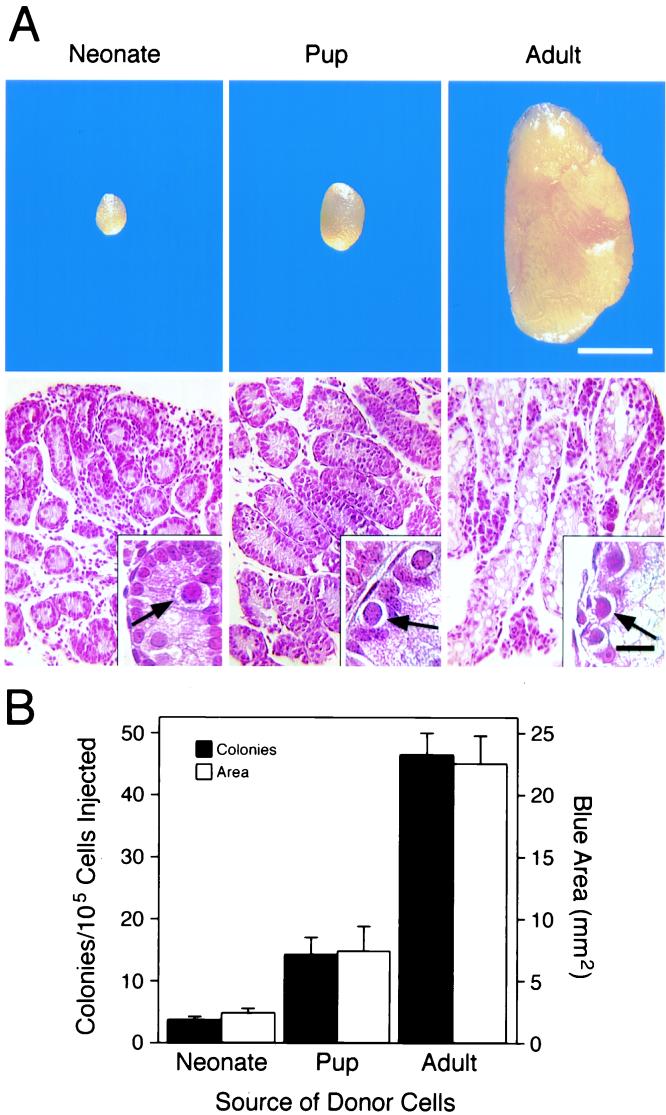Figure 1.
Determination of spermatogonial stem cell number in neonate, pup, and cryptorchid adult ZFlacZ donor testes by transplantation into busulfan-treated adult B6/SJL recipients. (A) Macroscopic (Top) and histological (Bottom) appearance of ZFlacZ donor testes. Neonate (day 0–2 PP), pup (day 6 PP), and cryptorchid adult testes are shown left, middle, and right, respectively. Neonate testes weighed 0.94 ± 0.1 mg, and 0.62 × 106 ± 0.14 cells were recovered per testis. Pup testes weighed 4.1 ± 0.1 mg, and 0.98 × 106 ± 0.17 cells were recovered per testis. Cryptorchid adult testes weighed 24.1 ± 0.9 mg, and 1.82 × 106 ± 0.04 cells were recovered per testis. There are many more interstitial cells in testes as they mature from neonate to adult that are removed during testis cell recovery (see Materials and Methods). Testis weight and cell recovery data were based on n ≥ 6. Testes from all donor ages were similarly devoid of differentiated germ cells and therefore show no X-gal staining. Arrows indicate germ cells. [Bars = 2 mm (Top) and 20 μm (Bottom Inset).] Testes were stained with X-gal, sectioned, and counterstained with nuclear fast red. (B) Colonization of recipient testes by donor testis cells from developmental ages in A. Approximately 1–3 × 105 cells were injected into each testis. Spermatogonial stem cell number and colony expansion are determined by the number of individual blue colonies of spermatogenesis (black bars) and total blue area (open bars) per 105 cells injected, respectively. The number of colonies produced per 105 cells from neonate, pup, and cryptorchid adult were 3.4 ± 0.4, 13.9 ± 2.8, and 46.1 ± 3.5, respectively, and blue area was 2.22 ± 0.30 mm2, 7.21 ± 1.95 mm2, and 22.34 ± 2.23 mm2, respectively (mean ± SEM; n = 22 for neonate and pup; n = 23 for cryptorchid adult).

